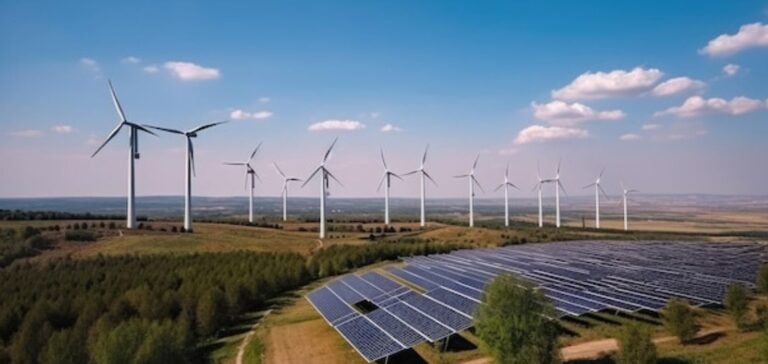Algonquin Power & Utilities Corp. (AQN) completes the sale of its renewable assets portfolio (excluding hydropower) to LS Power, a company specializing in energy investment, for up to US$2.5 billion.
This transaction marks a key step in AQN’s strategy to refocus on its regulated services business, considered more stable and less exposed to market fluctuations.
AQN CEO Chris Huskilson says the sale is part of a wider plan to transform AQN into a purely regulated business.
This approach will enable AQN to strengthen its balance sheet, optimize its operations and guarantee higher quality revenues.
The choice of LS Power as buyer is the result of a highly competitive sales process, attesting to the quality of AQN’s assets in the renewable energy sector.
Impact on the energy sector
The transaction enables LS Power to significantly increase its portfolio of renewable assets, strengthening its position in a rapidly expanding market.
For its part, Algonquin Power is focusing on reducing exposure to more volatile market segments, in favor of more predictable and stable growth in regulated services.
This sale illustrates a growing trend among energy companies to focus on less risky business segments, while capitalizing on the high valuation of renewable assets.
The USD 2.5 billion transaction breaks down into USD 2.28 billion in cash at closing, plus up to USD 220 million via an earn-out mechanism based on the performance of certain wind power assets.
After debt repayment and tax adjustments, Algonquin expects to net approximately $1.6 billion, which it intends to reinvest in the development of its regulated services.
Outlook and regulatory implications
The sale, which must still receive approval from the Federal Energy Regulatory Commission (FERC) in the United States, is expected to be finalized by the end of 2024 or early 2025.
Once completed, it will enable Algonquin Power to focus exclusively on its electricity and water distribution and transmission activities, largely in the North American market. This transition to a regulated pure-play is seen as a strategy to guarantee stable revenues and satisfy investors’ growing demands for financial stability.
For LS Power, the acquisition of these renewable assets represents an opportunity to strengthen its position in a fast-growing sector, with a particular focus on wind and solar power, which are benefiting from growing political and financial support.
This strategic move could inspire other players in the energy sector to consider similar asset sales, as the market continues to fragment between regulated and non-regulated segments.
In conclusion, this transaction between Algonquin Power and LS Power is part of a wider dynamic of restructuring in the energy market, where the search for financial stability is driving companies to review their asset portfolios.
Algonquin Power hopes to maximize shareholder value while strengthening its ability to provide quality services to its customers.






















